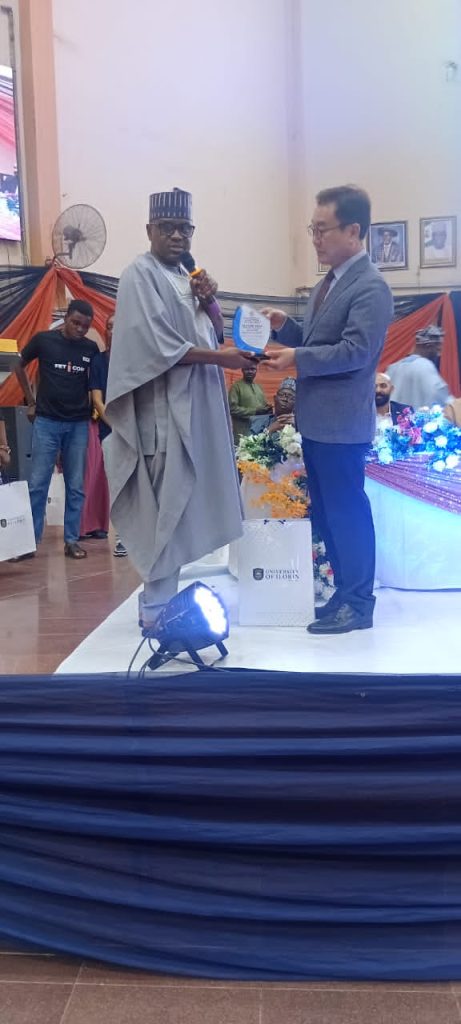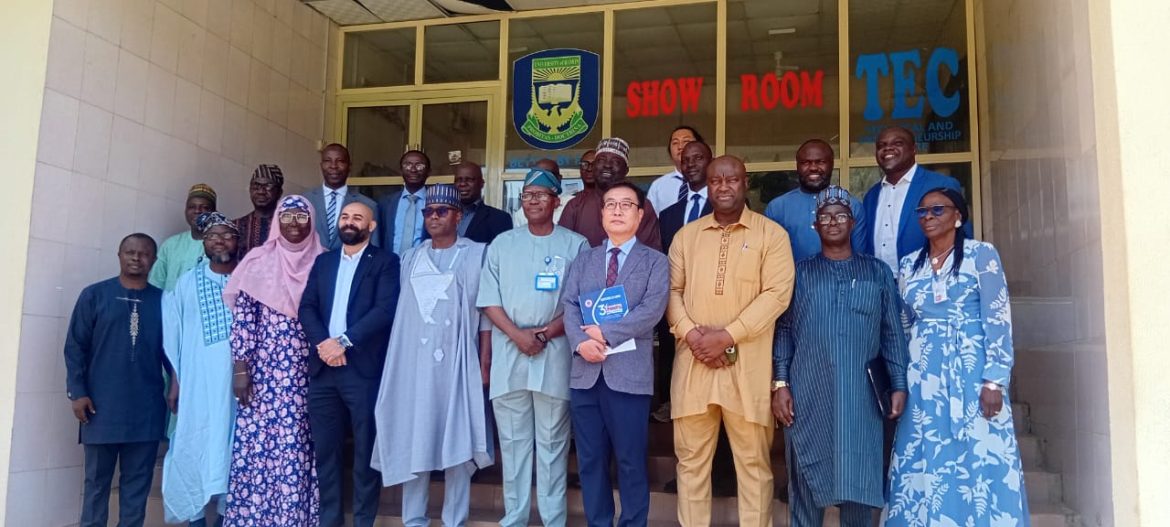Leading experts, academics, policymakers, and technocrats from across Nigeria and beyond on Monday convened at the University of Ilorin for the 3rd edition of the Faculty of Engineering and Technology International Conference (FETiCON 2025), with a resounding call for increased investment in indigenous technologies as sustainable solutions to the country’s pressing food, energy, and economic challenges.
Themed “Revitalising Communities: The Role of Indigenous Technologies in Addressing Food Security, Energy, and Economic Challenges for a Sustainable Future,” the conference opened with a strong focus on homegrown innovation, collaborative research, and strategic policy reforms necessary to tackle Nigeria’s systemic issues.
Declaring the conference open on behalf of the Vice-Chancellor, Prof. Wahab Egbewole (SAN), the Deputy Vice-Chancellor (Management Services), Prof. Adegboyega Adisa Fawole, lauded the Faculty for organizing such a timely intervention.
He emphasized the urgency for Nigeria to look inward for solutions, particularly in the post-COVID-19 era, where self-reliance has become more crucial.
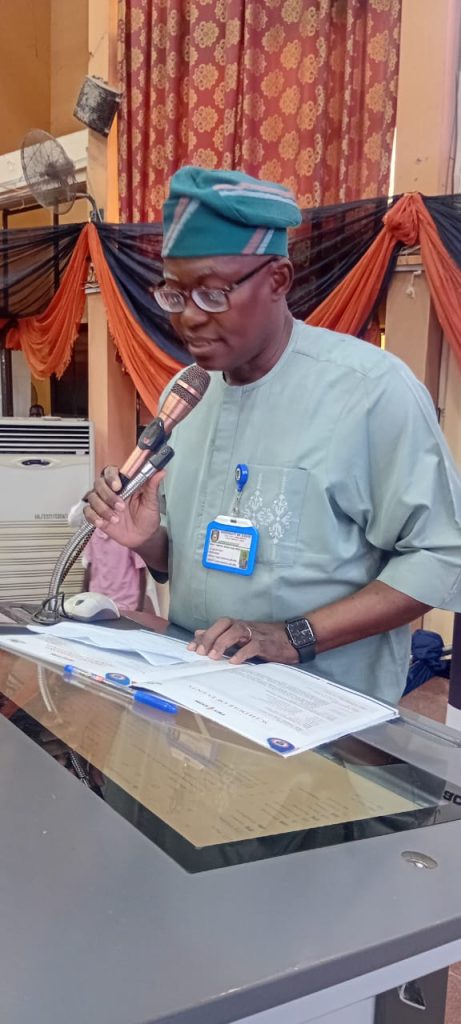
“We must now ask ourselves what we can do using local solutions to address the pressing issues that affect us, energy access, poverty, hunger and examine them from our unique perspective and context,” he said.
He noted that partnerships and collaborations, as fostered by the Faculty, would lead to more efficient practices and impactful innovations.
Delivering the keynote address, Prof. Hyeon-Tae Kim, a renowned biosystems engineer from Gyeongsang National University, South Korea, introduced the concept of “K-smart farms” an innovative farming model inspired by Korea’s global cultural exports like K-pop and K-food.
He emphasized the need to integrate biosystems engineering into everyday life, stressing that sustainable agriculture must be built on reliable communication technologies, farmer education, new agribusiness models, and accessible financing.
Prof. Kim also identified key solutions to the challenges facing smart farming in Nigeria, including improved water management, climate adaptation strategies, and robust agri-food supply chains.
“K-smart farms can transform agriculture in Nigeria the same way BTS transformed global music,” he said.
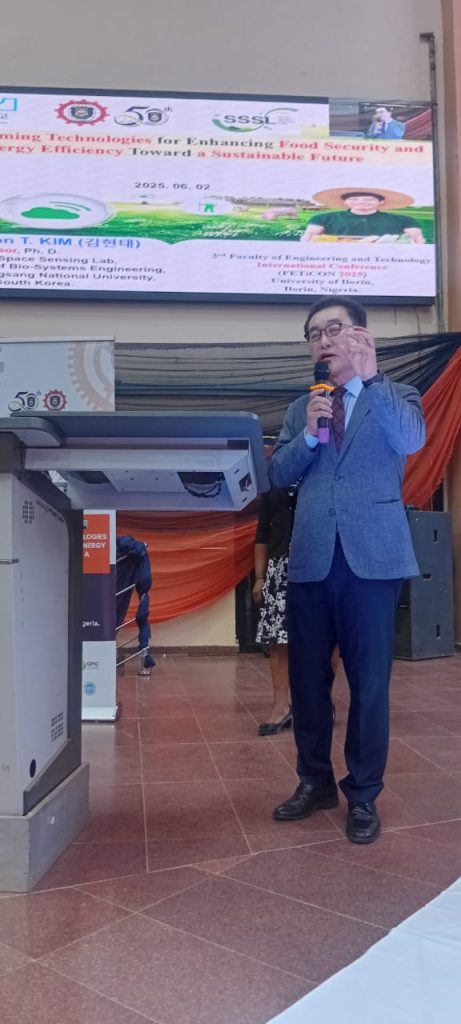
Plenary speaker Engr. Seun Suleiman, Managing Director of Siemens Energy West Africa and a proud alumnus of the University of Ilorin, offered a technical breakdown of Nigeria’s energy infrastructure crisis.
He spoke on erratic power supply, grid collapses, and voltage congestion across the national grid.
He emphasized Siemens’ commitment to resolving these systemic issues. “We are identifying grid congestion points and working to declog them to allow for equitable distribution of electricity across the country,” he said.
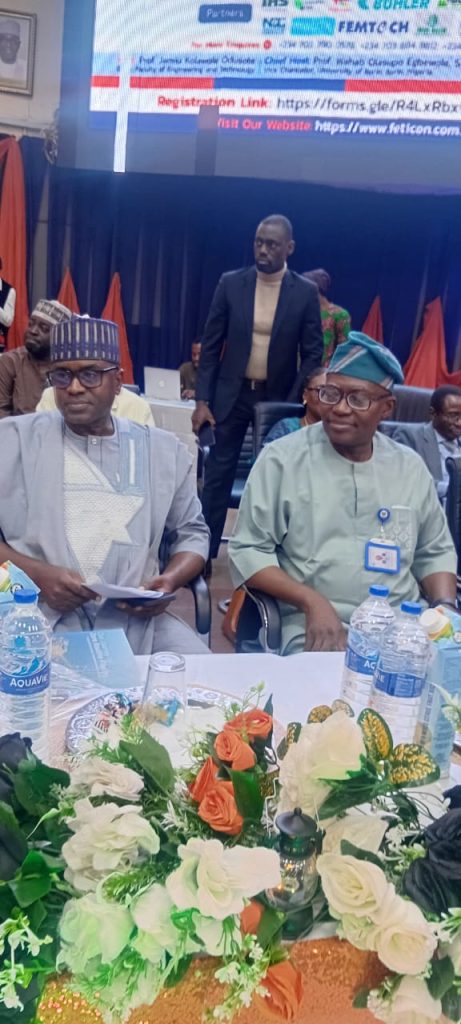
He added that Siemens, operating in Nigeria since the 1950s, powers most of the oil companies in the country. “They can’t drill their oil without our machines,” he remarked.
Another speaker, Mr. Mustafa Rajab, Head of the Grain Processing Innovation Research Development Centre at Buhler Group, shared an emotional and inspiring personal journey from war-torn Syria to a successful career in Nigeria’s agribusiness sector.
Rajab described Nigeria as a land of opportunity, rich in resources but underutilized. “We don’t need to import anything,” he declared.
“Nigeria is rich in agricultural produce and landmass. The problem is lack of return on investment, which causes land to be abandoned.”
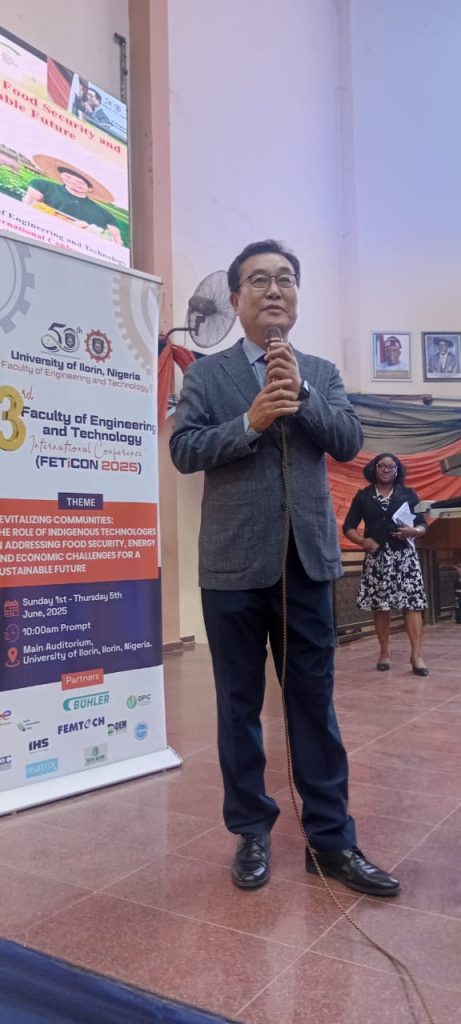
He emphasized self-belief and purpose-driven innovation among students, urging them to “find your purpose, find your goal.”
Earlier, the Chairman of the opening session, Engr. Victor Bandele, Deputy Managing Director of TotalEnergies E&P Nigeria, called for an urgent bridge between academic research and industrial application.
“Indigenous technology isn’t just an alternative, it’s our competitive edge,” he declared. “While others import solutions, we’re sitting on a goldmine of homegrown brilliance. Are we bold enough to dig it up and refine it?”
Engr. Bandele urged industry leaders to stop waiting for change and start driving it. “Let’s invest in local talent and mentor fiercely. The next big thing in energy or tech might just be scribbled on a notepad in one of these lecture halls,” he said.
“As we engage over the next few days, let’s remember: Conferences don’t change nations, people do. So let’s leave here not just with papers and cerficates, but with collaborations. Not just with ideas, but with action plans”, he added.
The Dean of the Faculty of Engineering and Technology, University of Ilorin, Prof. Jamiu Kolawole Odusote, in his welcome speech, described the conference as a moment of collective inspiration and sustainable transformation.
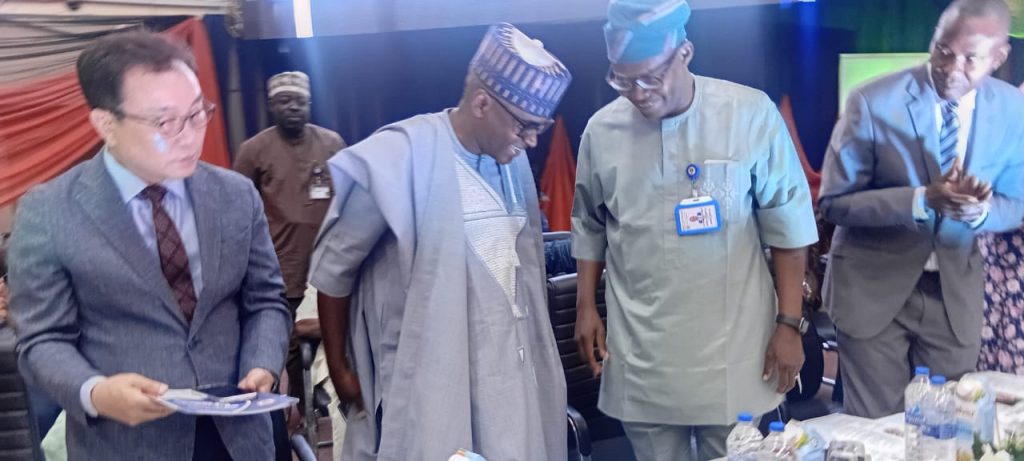
He appreciated the Vice-Chancellor, the keynote and plenary speakers, and all contributors to the success of FETiCON 2025.
Highlighting major achievements of the faculty, the Dean mentioned: “The FETUILS Tech Hub, training students in industry-relevant skills. The establishment of the FETUILS Car Service Centre for hands-on learning and service. The ongoing development of an Electric Vehicle (EV) Charging Station. The Central Workshop’s eco-conscious innovations such as waste bins and energy-saving stoves. The recent infrastructural boost for the Nigerian Journal of Technological Development (NJTD) and the launch of a new journal — The Journal of Engineering, Innovation and Sustainability (JEIS).
He also highlighted: The first-ever Tech Trade Fair and Research Products Industrial Summit, held in collaboration with the Laboratory to Product Centre (LABTOP). Stakeholder engagement through COREN Outcome-Based Education (OBE) meetings across all ten departments. The introduction of undergraduate and postgraduate training workshops to improve research standards. Alumni contributions including donations of equipment and establishment of student-friendly social spaces.
He, however, reiterated the faculty’s commitment to impact-driven initiatives, stating, “We want to be remembered not for diagnosing problems, but for solving them.”
In his welcome address, the Chairman of the Planning Committee, Prof. Kajogbola Rasaq Ajao, welcomed all participants to FETiCON 2025 and emphasized the importance of continuity, collaboration, and implementation.
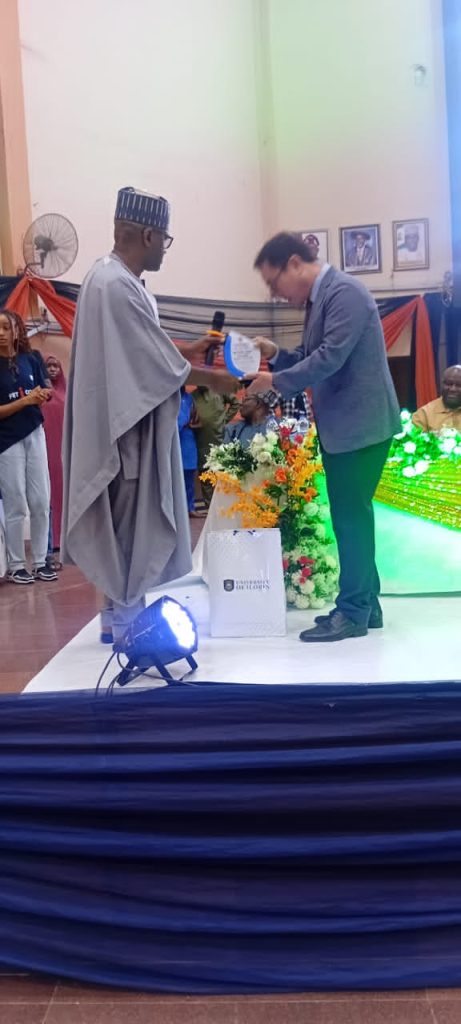
He commended the sustained growth of the conference and its impact since inception, noting that the Faculty remains committed to championing practical engineering solutions through rigorous academic and industry engagement.
Prof. Ajao said the 2025 edition builds on the successes of previous conferences, expanding the scope of discussions to include not only research papers but also industry-based innovations, public-private partnerships, and student participation.
He expressed appreciation to the University management, keynote and plenary speakers, sponsors, and volunteers for their support and dedication.
